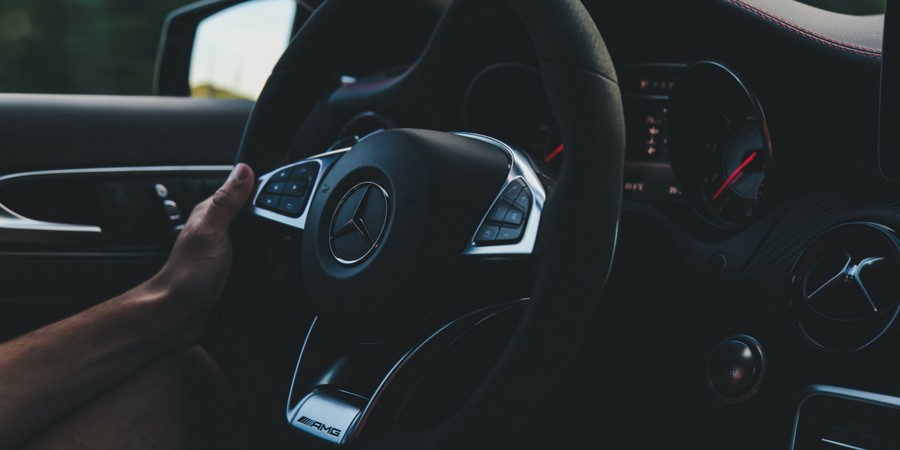A humming noise emanating from your car can be unsettling and is often a sign that something requires attention. As an expert at cars.edu.vn, I’m here to guide you through the potential causes of this sound. The first step in diagnosing a humming noise is to determine when you hear it. Is it present when your car is idling, or only when you’re driving? The answer to this question will significantly narrow down the possible culprits. Understanding the context of the noise is crucial for effective troubleshooting and repair.
Humming Noises When Your Car Is Idling
If you notice a humming sound when your car is stationary and idling, the issue likely lies within systems that operate even when the vehicle isn’t moving. These systems are often driven by the engine and its belts.
One common source is a worn drive belt or a component driven by it. This includes:
- Power Steering Pump: A failing power steering pump can produce a noticeable hum, especially when you turn the steering wheel.
- Air Conditioning Compressor: If the humming intensifies when you turn on your AC, the compressor might be the source.
- Water Pump: A worn water pump bearing can create a humming or whining sound.
- Belt Idler Pulleys and Tensioners: These pulleys ensure the drive belt runs smoothly. If their bearings are failing, they can generate a humming noise.
Another potential cause of a humming noise at idle is escaping air. Listen carefully for hissing or whistling sounds accompanying the hum, which could indicate:
- Exhaust System Leak: A small leak in your exhaust system can produce a humming sound as gases escape, especially around joints or welds.
- Air Intake System Leak: Leaks in the air intake system can also create humming noises as air is drawn in or escapes improperly.
It’s worth noting that sometimes, noises present at idle become more pronounced or noticeable when the car is in motion.
Humming Noises While Driving
If the humming noise only appears when your car is moving, the problem is likely related to your drivetrain. The drivetrain is responsible for transferring power from the engine to the wheels and includes components that are in motion whenever the car is driving. Key components to consider are:
- Transmission: While less common for humming, transmission issues, particularly in automatic transmissions, can sometimes manifest as a humming or buzzing sound.
- Drive Axles (CV Axles): Worn constant velocity (CV) joints in the drive axles can produce a humming or clicking noise, often more noticeable during turns.
- Carrier Bearings (Center Support Bearings): In vehicles with multi-piece driveshafts, worn carrier bearings can cause vibrations and humming noises, especially at higher speeds.
- Wheel Bearings: Failing wheel bearings are a very common cause of humming noises while driving. These noises often change in pitch or intensity depending on vehicle speed and can sometimes be more pronounced when turning. A worn wheel bearing will typically produce a cyclical humming or rumbling sound that gets louder as speed increases.
Wear and tear on these drivetrain components is the primary reason for humming noises. While some wear may be expected over time, excessive wear can lead to component failure.
Identifying the Source: Related Noises and Symptoms
To further pinpoint the cause of the humming noise, pay attention to when and how the noise changes:
- Noise Timing: Note if the noise occurs only at idle, only at highway speeds, or across the speed range.
- Speed Sensitivity: Does the humming change in pitch or volume as you speed up or slow down? Wheel bearing noises often increase in frequency with speed.
- Steering Influence: Does turning the steering wheel affect the noise? Changes while turning can indicate wheel bearing or power steering pump issues. For example, if the noise gets louder when turning left, it might suggest a problem with the right wheel bearing, and vice versa, due to weight shifting.
- RPM Sensitivity (Engine Speed): Noises related to drive belts and their components might become louder or change with engine RPM, but are less affected by vehicle speed itself. These noises might also change when you put a load on the power steering system, like when parking.
How to Diagnose and Fix a Car Humming Noise
Diagnosing a humming noise typically involves a systematic approach:
- Test Drive and Observation: A mechanic will usually start with a test drive to hear the noise firsthand and gather information about when it occurs and how it changes.
- In-Shop Inspection: The vehicle will be lifted to allow for a closer inspection of the drivetrain and rotating components.
- Stethoscope Use: Using a mechanic’s stethoscope, technicians can carefully listen to different parts of the engine and drivetrain while the car is running (and safely supported) to pinpoint the precise location of the noise.
- Component Examination: Once the source is suspected, components like belts, pulleys, bearings, and axles will be visually inspected for wear, damage, or looseness.
Repairing a humming noise depends entirely on the cause. It might involve:
- Replacing a worn drive belt or pulley.
- Replacing a failing power steering pump, AC compressor, or water pump.
- Repairing exhaust or intake leaks.
- Replacing worn wheel bearings, CV axles, or carrier bearings.
Importantly, most of these components wear out naturally over time and vehicle mileage. Regular scheduled maintenance is crucial for prolonging the life of many of these parts. For systems like power steering and transmissions, maintaining clean fluid through regular fluid changes can significantly improve their longevity and help prevent premature wear and tear that can lead to noises. By addressing humming noises promptly, you can prevent more significant issues and ensure your car remains reliable.

